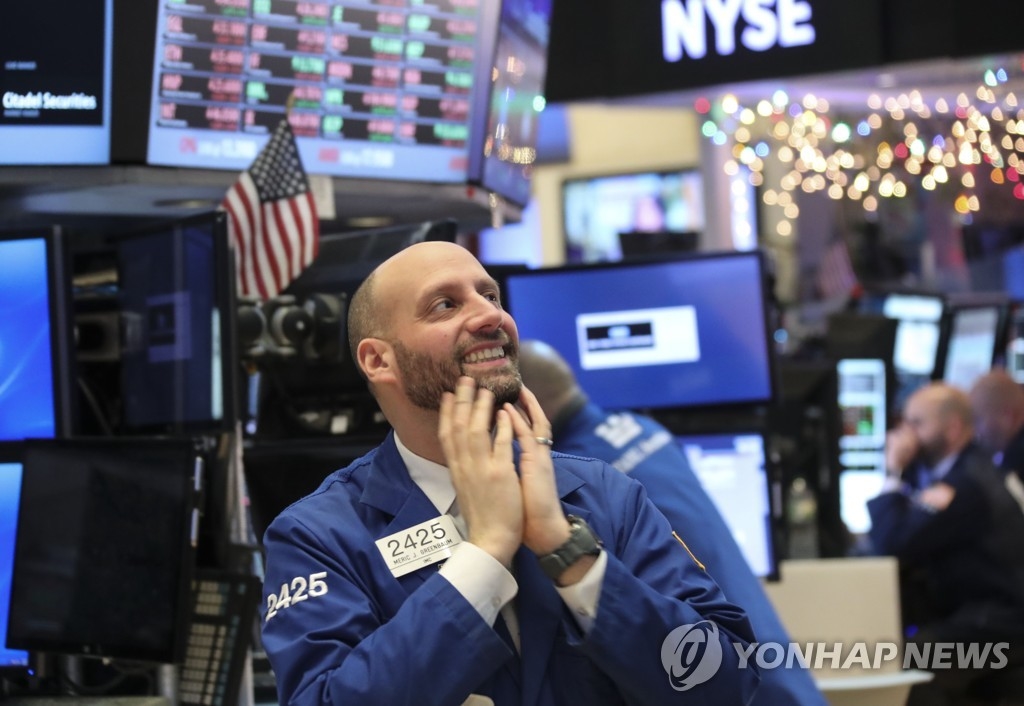
In the US New York Stock Exchange, the leading index rose all at once with the influence of US President Donald Trump’s signing of the Corona 19 fiscal stimulus package.
As of the 28th (hereafter Eastern time), the Dow Jones 30 Industrial Average on the New York Stock Exchange (NYSE) ended at 30,403.97, up 204.10 points (0.68%) from the battlefield.
The Standard & Poor’s (S&P) 500 index increased 32.30 points (0.87%) from the battlefield to 3,735.36, and the technology stock-oriented NASDAQ index increased 94.69 points (0.74%) to 12,899.42.
All three indices broke record highs in both the intraday and closing prices.
As the market’s long-awaited stimulus to respond to Corona 19 was finally concluded, risk investment sentiment was maintained, and the stock market started on an uptrend in the last week of 2020.
US President Trump signed a budget of $2.3 trillion (2,520 trillion won), including the federal government budget and fiscal stimulus measures for next fiscal year. The budget consisted of a $900 billion COVID-19 fiscal stimulus package and a $1.4 trillion in fiscal year 2021 (October 1, 2020-September 30, 2021) federal budget.
Concerns that a partial shutdown (temporary interruption of business) could take place on the 29th, after President Trump signed the budget bill, was resolved from the 29th, after the temporary budget required for federal government operations was exhausted.
A stimulus plan that was unclear until late last weekend, such as the exercise of vetoes, was also implemented, enabling households and small businesses to be supported. The economy was sighing until the corona19 vaccine was widely distributed and states resumed the economy.
Travel and aviation stocks, which have been hit hardest by the pandemic, have been rising.
Some large technology stocks were also strong, with Apple rising 3.6% and Amazon and Facebook also showing strong 3%. Disney also rose by 3%.
The European Union (EU) has also entered the vaccination stage, which supported investor sentiment.

International oil prices fell on concerns over oversupply.
On the same day, on the New York Commercial Exchange (NYMEX), Western Texas crude oil (WTI) for delivery in February of next year closed at $47.62, down 1.26% ($0.61) per barrel.
The London ICE Futures Exchange’s February Brent derivative fell 0.84% ($0.43) per barrel to close at $50.86.
Investors are expecting discussions on increasing oil production at the OPEC+ meeting held on January 4 next year.
Earlier, OPEC+ had agreed to increase production of 500,000 barrels per day from January next year.
International gold prices also fell.
On the New York Commercial Exchange, gold for February delivery closed at $1,880.4, down 0.15% ($2.8) per ounce.
(Photo = Yonhap News)
Copyrightⓒ Korea Economic Daily TV. All Rights Reserved. Unauthorized reproduction and redistribution prohibited
